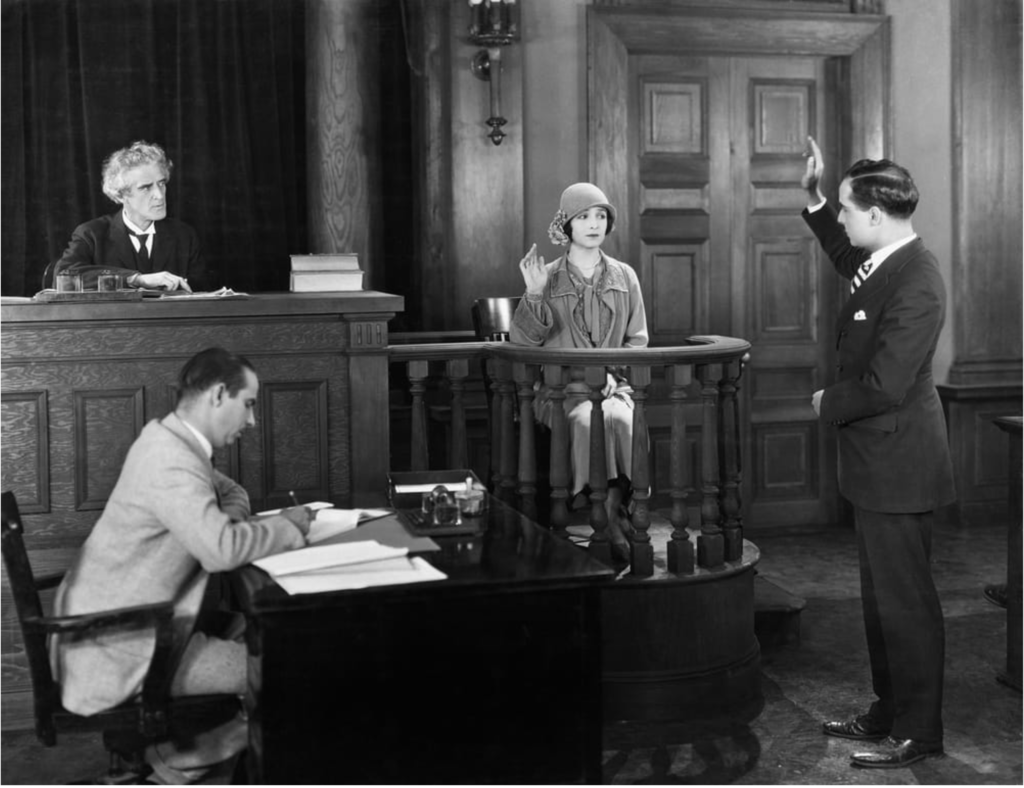Who Did The Eyewitnesses Say Jesus Was?
Eyewitness Only, Please
If, after I die, someone wanted to find out about who I was as a person, who would be the best sources of that information? Would it be the friends I went to school with? Probably not. I moved from Ohio to Los Angeles a couple of years after I got out of high school. That was over 24 years ago. I’m “Friends” with a lot of them on social media, but they don’t know much about who I am these days. They have memories of me as a kid, but I’ve lived all of my adult life 2500 miles away from there.
OK, how about people I would have interacted with daily? My co-workers? Or clients? Or the clerk at the grocery store who knows me by name because I am in there so much? If you interviewed them, they would certainly have some great stories to tell – things we talked about or common experiences. But, they wouldn’t be the best source of information on who I really was.
If you wanted to find out about the way I lived my life, the things I did, or the things I believed, the best source for that information would be the eyewitnesses to my life. Those people who spent the most time with me or whom I had the deepest conversations with. That would be my wife, my kids, and a handful of others I have close relationships with. They are the eyewitnesses.
Being an eyewitness was something set from the beginning as a qualification of utmost importance. The Apostles used this requirement in Acts 2:21-22 when they picked Judas’ replacement. They wanted someone who had seen the things Jesus had done – from his baptism to his crucifixion to his resurrection. In other words, an eyewitness.
The early church fathers also used the eyewitness criteria as they started to accept and reject books for the New Testament canon. If we look at the New Testament, there are 9 authors. 8 if you accept that Paul wrote Hebrews. All of these authors were either direct eyewitnesses to the ministry of Jesus or they wrote down what those eyewitnesses said (in the case of Luke and Mark). Simply having the name of one of the apostles didn’t mean the book was automatically added to the canon, either. There are a handful of documents like The Gospel of Thomas, the Gospel of Peter, and the Acts of Paul that are attributed to apostles. But, these documents are dated late in the 2nd century – too far away from the original events to be authored by those they are attributed to.
Can We Trust The Eyewitnesses?
One part of my personality that shows up from time to time (sometimes for the better, sometimes for the worse) is my skeptical nature. I tend to not take things I hear or read at face value initially. And, for good reason, I think. For one, people make statements all the time that they may think are true but they weren’t really in a position to make. Also, eyewitnesses lie. Or bend the truth because they have something to hide or gain. Just ask anyone who has been part of a criminal trial.
In his book Code Case Christianity, long-time homicide detective J. Warner Wallace gives a template that, as an investigator, he uses to evaluate the reliability of an eyewitness. It’s also the same template that is contained in most of the jury instructions across the country. The instructions say, basically, that if this eyewitness passes this test then you are to take his or her account as reliable. It doesn’t matter if they are a jerk or give you the creeps. If they appear trustworthy based on these questions then you are to trust them.
So, what are the questions we should use to determine if an eyewitness is reliable? First off, were they really there? Was the eyewitness in a position to really observe what they said they did? Can they describe the scene in a way that shows they were there? For the gospel writers, this would include things like using names and terms for things that were used at the time of the events. For example, the names of places and buildings change over time. Did the author refer to a place with a name that wasn’t used until the 2nd century? If so, we could say that it looks like this account came much later.
The second question we have to ask is can their accounts be verified? This means that if there are multiple eyewitnesses and their accounts are fairly similar then they pass that test. Now, notice I didn’t say they had to match exactly. No two eyewitness accounts will match exactly. We all observe different things when we see something happen. In fact, if the stories are exactly the same, you would be safe to assume that the eyewitnesses got together to discuss their accounts before they gave them to you. But, if there are ways to back up the account the eyewitness gives, then that makes them more trustworthy.
The third question we have to ask is did the eyewitness change their story over time? When someone comes forward or is interviewed at the scene, there will be the initial notes the detective took. Then, if the case goes to trial, there will be a deposition. And, finally, the witness will give their account on the witness stand. In the case of the New Testament writers, we have years and years of them giving testimony. In the case of John, it was close to 60 years. Did they ever go back on the things they said and change their story?
The final question we have to answer regarding our eyewitness is do they posses a bias? Is there a reason they may make something up or tell a lie? Maybe the defendant owes them money. Or maybe they are scared of the defendant, so they don’t give the whole story. Or maybe, in the case of the defense, the eyewitness hates cops. Maybe the witness and the defendant are part of a gang or a crew. But, if you can’t see any kind of motivation for that person to make up what they are saying, then you have to trust them.
Were the New Testament Authors Reliable Eyewitnesses?
Given the template we have established, I think it is fair to run the gospel writers through the test to see if they are reliable. Frankly, when I was younger, I didn’t think the writers probably were. Why? Because I had some notion in my head that the people who wrote the New Testament probably had some sort of secret agenda and crafted a message to keep themselves in power. But, this was before I examined the witnesses to see if they were reliable and trustworthy.
Our first question to answer is were the eyewitnesses there? We looked previously at several good reasons to date the gospels and the book of Acts very early. Given that the accounts were written only a few decades after the events they describe, the accounts were written soon enough that if the accounts were false, there would have been plenty of opportunities for someone to refute them. Yet, we have no historical documents of the time that do this.
What about corroborative evidence? Well, the authors describe the places and people accurately with names appropriate for the time period. Also, there are numerous non-Christian sources that back up some of the events that the gospels describe.
How about stories changing over time? Well, if we look at the gospel accounts being told a few generations out from the original authors, it’s the same story. The gospel message that Irenaeus told was the same that John told.
Finally, what about bias? Did the gospel authors have any reason to lie about what happened? There are only three motivations for someone to commit a crime – money, passion, or power. Sure, 400 years later, the church started to gain lots of power and wealth. But, the apostles certainly didn’t. They were encouraged to live extremely modestly. And they certainly didn’t score with the ladies. Jesus taught them to have one wife. If any. And, in terms of power, they gave all that up. In fact, we have good evidence to show that many of the apostles were martyred for what they taught. At a minimum, they were persecuted. Run out of town after town. Beaten. Imprisoned. Stoned. That doesn’t sound like men on a power trip to me.
Who Did The Eyewitnesses Say Jesus Was?
Since the eyewitnesses passed the reliability review, we can now look at what they had to say about who Jesus was and trust that they were being honest and truthful. Did they think of him as just another wise teacher? Or did they think of him as something more?
Let’s start with the Gospel of John. There is the famous scene with “doubting” Thomas where he proclaimed he wouldn’t believe that Jesus had risen until he saw proof. And not only saw proof but touched it as well. (John 20:24-25). A few days later, Jesus does appear to his disciples when Thomas is present. Then, Thomas calls Jesus “my Lord and my God” (John 20:28)
Peter, the guy who turned his back on Jesus after he had been arrested, later wrote “To those who have obtained a faith of equal standing with ours by the righteousness of our God and Savior Jesus Christ” (2 Peter 1:1).
There’s also Paul. Paul was an early persecutor of Christians. But, something happened to him so powerfully that he would later write “To them belong the patriarchs, and from their race, according to the flesh, is the Christ, who is God over all, blessed forever. Amen.” (Romans 9:5). Also, in his letter to Titus, he wrote “waiting for our blessed hope, the appearing of the glory of our great God and Savior Jesus Christ,” (Titus 2:13).
Remember, these guys were Jews. To consider anyone equal to God who wasn’t also God would have been blasphemous. Yet, after these men saw the evidence Jesus provided – the things he said, the miracles he performed, his predicting of future events, and his resurrection from the dead – they believed he was God.
You Keep Using That Word…
Another clue we can look at lies in a title that is often given to Jesus. That title is Lord. Here’s where our 21 century understanding of this word can get in the way of seeing what the original authors meant. When we read the Bible in English and come across that word, we draw certain images in our heads. I think of kings and knights and European nobility. We could also think of it as an old-fashioned way to say “sir” or pay respect to someone of a higher class.
This is one of those cases where it helps us to know the original word the authors used and how something can get lost in translation. The original New Testament manuscripts were written in Greek. The Greek word that we translate as “Lord” is the word kyrios.
To understand the importance of this word to 1st century Jews, we need to look at another document known as the Spetuagent. This was a version of the Old Testament written in Greek that appeared in the early 2nd century BC – so 200 years before the birth of Jesus. At this time, the Jewish people were spread around the Roman Empire and many of them did not speak Hebrew. This would have been a large chunk of the audience the books of the New Testament were written for. Which is why the New Testament books and letters were also written in Greek.
Now, back to the word kyrios. In the Greek Old Testament, this word is used for “Yahweh” or “Lord”. There is only one Lord in the Old Testament and that is God. This word is used 6814 times in the Old Testament and it always represents Yahweh or the LORD. So, Jews in the 1st Century would have read that word in the letters of the apostles and been pretty clear on what they meant. They weren’t referring to Jesus as some sort of noble worthy of respect and honor. They were calling him Yahweh, The Creator of the Universe, the God of Abraham, Isaac, and Jacob. In fact, they did this over 400 times in the epistles in reference to Jesus as a way to affirm his deity. See Luke 2:11, Luke 1:43, and Matthew 3:3 for examples of this.
One Last Challenge
There’s one other challenge I’ve heard on more than one occasion that I have never understood. But, I’ll address it because I do hear it often enough. Sometimes, you might hear someone say “well, are there any non-Christian sources that believed Jesus was God”. I understand the motivation of this question. It is a desire to look at two opposing sides and determine if they agree on some point so that we can make a balanced judgment on that point. For many issues, this is a wise tactic. But, in this case, the question makes no sense. Christians believed Jesus was God. Non-Christians believe Jesus wasn’t God. So, the question is basically asking “can you show me any sources who didn’t believe in Jesus who did believe in Jesus”. Logically, this makes no sense. It’s like asking the members of a jury in a criminal case “do any of you who voted that the defendant was guilty think he wasn’t guilty”.
Another issue with this line of questioning is it shows someone’s bias towards an already accepted conclusion. They are presupposing that the people who did believe Jesus was God are untrustworthy and their conclusion is wrong. But, it’s specifically because of the evidence these people observed that they did come to the conclusion that Jesus was God.
The truth is, though, we do have two sources who did not live and travel with Jesus during his ministry, that did not believe Jesus was God, but did after they were shown the evidence. One was Saul of Tarsus – who would later be known as Paul, and the other was James, Jesus’ own brother. Saul was an early persecutor of Christians. He oversaw the arrest and death of many of Jesus’ early followers. And, even though James was Jesus’ brother, he didn’t believe Jesus was God. Yet, Paul would go on to be the most prolific author of the New Testament, be chased out of town after town, stoned, imprisoned, and eventually beheaded because he proclaimed that Jesus was God. James would go from unbelief to become one of the pillars of the early church in Jerusalem. He was later stoned to death in 62 AD (see Josephus’ Antiquities of the Jews 20.197-203).
So, here we have two sources who went from unbelief, reviewed the evidence, and had something happen to them that was so convincing that they were willing to go their deaths over it.
The Eyewitnesses Believed Jesus Was God
As we review the texts written by the eyewitnesses to Jesus’ ministry, we can see that they clearly believed Jesus was the Son of God. The accounts were written early enough that counter claims could have been written to oppose them – yet, we don’t have any. And these witnesses pass the test to be considered reliable. We can tell they were present at the time of the events, there are others pieces of evidence that back up their testimony, their testimony never changed over time, and they certainly had no motivation to lie or fabricate any of their accounts. Whether of not Jesus was the Son of God is a topic for a different article. But, clearly, the people who spent the most time with him before he was executed certainly thought so.
Share This Story, Choose Your Platform!
latest video
news via inbox
Nulla turp dis cursus. Integer liberos euismod pretium faucibua








The eyewitnesses were mainly the disciples. They spent time with Jesus before He died and after He resurrected. So they believed Jesus was God with the seeing and the feeling of his body. The Pharisees were too stubborn to understand the meaning of it all and they wanted to be better than God so that is why they crucified Him. The Gospels are credible sources, and this was told by Christians and non-Christians. The places that are described in the Bible is historically accurate.
HI Andy,
Great summary.
Thanks for your comment